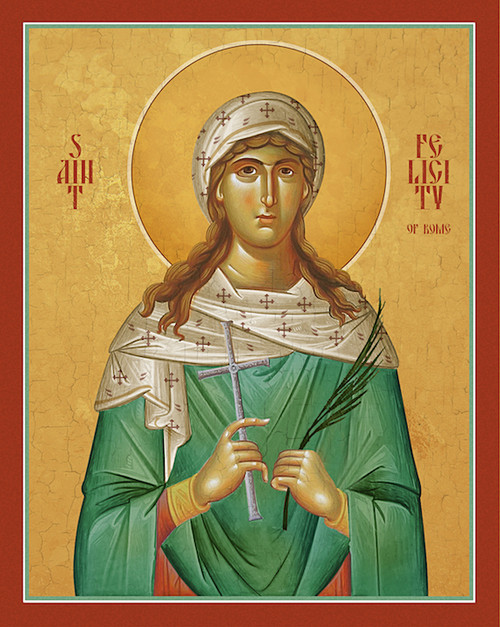Commemorated on January 18
Legend says that Saint Prisca was of a noble family. At age thirteen, she was accused of Christianity before Emperor Claudius. He ordered her to make a sacrifice to the god Apollo. When she refused because of her Christian faith, she was beaten and sent to prison.
Upon her release from prison, she still held steadfastly to her faith in Jesus Christ. This time her punishment included flogging, the pouring of boiling tallow upon her, and a second imprisonment. She was at last thrown to a lion in the amphitheater, but it quietly lay down at her feet. The Italian poet Martha Marchina (1600-1646) describes this moment of Prisca's martyrdom in a pair of poems in her book Musa Posthuma where the lion's humane nature is contrasted against human savagery.
She was starved for three days in a slaves' prison house, and then tortured upon the rack. Pieces of flesh were next torn from her body with iron hooks, and she was thrown on a burning pile.
She miraculously still remained alive, but was beheaded at the tenth milestone on the Via Ostiensis—the road from Rome to Ostia. The Christians buried her body in a catacomb at the place of her death, where now stands a church of St. Prisca and where previously stood a very early title church, the Titulus Priscoe, mentioned in the fifth century and likely built in the fourth.
According to Catholic theologian Johann Kirsch, extant narratives are unhistorical and their details impossible.







